How 100,000 Kenyans are redefining what it means to be a Quaker.
As Pastor Walter closes his eyes and raises his hands, hundreds follow. Music erupts throughout the church, mixing in crescendo with rising voices and clapping. The 20-person choir joins in, bringing the Sunday service to an apogee.
This is not an unusual sight here in Nairobi, Kenya. Christian churches in these parts have a penchant for boisterous services. But the approximately 700 people filling this two-story church are Quakers, known in the West mostly as vehement peace activists who worship in silence. Not here, says Pastor Simon Khaemba, who preaches alongside Pastor Walter at the Friends International Centre. “We’re noisy Quakers.”
A short walk from the main church is a separate nondescript building, void of color or decoration. Inside, six people sit in a semi-circle in complete silence with their heads bowed, either reading the Bible or praying. As Pastor Walter’s service echoes and bumps in the background, the group remains like this for over an hour. The six, half of whom are foreigners, are also Quakers.
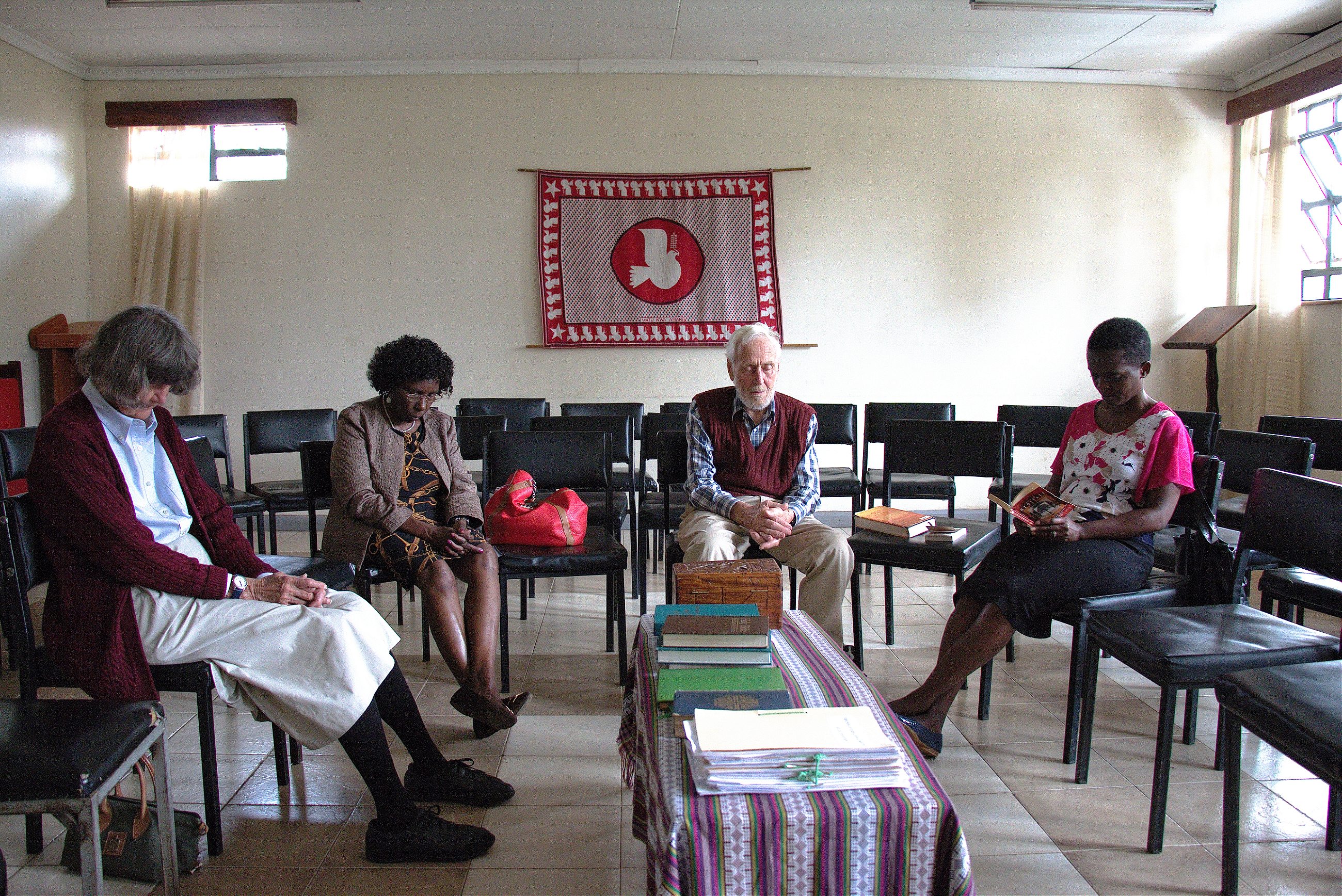
There are about 300,000 Quakers in the world, and over one-third of them live in Kenya

The two services take place mid-morning along the main thoroughfare of one of Nairobi’s bustling upper-middle class neighborhoods, just as the sun is strong enough to make you sweat. East Africa’s most well-known tech incubator, iHub, is across the street. Just a few hundred feet apart, the services are a microcosm of the current state of Quakerism in the world. On one hand, the African (and Latin American) church, close to other Christian denominations in belief and practice, is young and thriving. On the other hand, the Western, liberal-thinking branch has much older constituents who are dwindling in numbers.
There are about 300,000 Quakers in the world, and over one-third of them live in Kenya. While the amount of constituents there is growing by the day, numbers in the West (the United Kingdom and United States, in particular) have nosedived in recent years, some 25 percent from 1972 to 2002, according to the Friends World Committee for Consultation.
Kenyan Quakers are just getting started. They’ve seen their yearly meetings grow with the help of evangelism, new churches and services that appeal to a younger, more mainstream Christian crowd. Churches have brought in bands, adopted praise and worship, experimented with vestment and even started evangelizing on the radio and in the street. “We question how things were done traditionally and try to look at things from an African perspective,” says Pastor Khaemba.
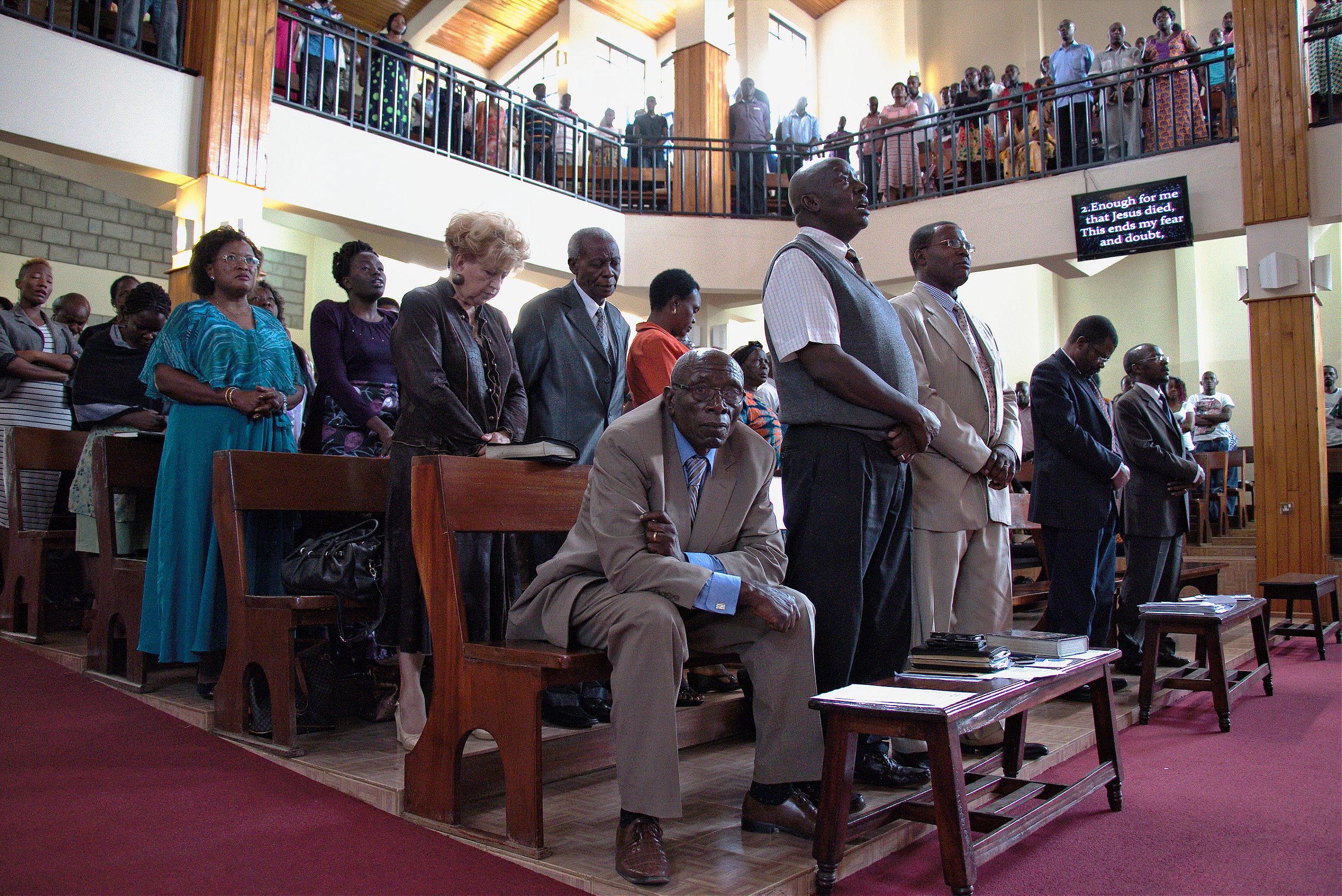
The religion has a long history in Kenya. Three American Quakers first arrived on the coast of the country in 1903 before taking the train to Kisumu, a town along the shores of Lake Victoria in the West. Thanks to a good entente with the British government who gave them land and a stable political environment, the Quaker community thrived and began to spread, setting up a number of centers in Nairobi. According to a number of pastors, the reasons for its success lay in an approach that focused on economic development and education, rather than evangelism. Today, there are more Quakers in Kenya than in any other country in the world.
But it wasn’t until 2007 that a major international Quaker gathering was held in Kenya. The meeting, and the ones that ensued, weren’t without controversy. In 2012, a gathering held in Nairobi was almost canceled halfway through because of arguments between liberal and conservative Quakers over same-sex marriage.
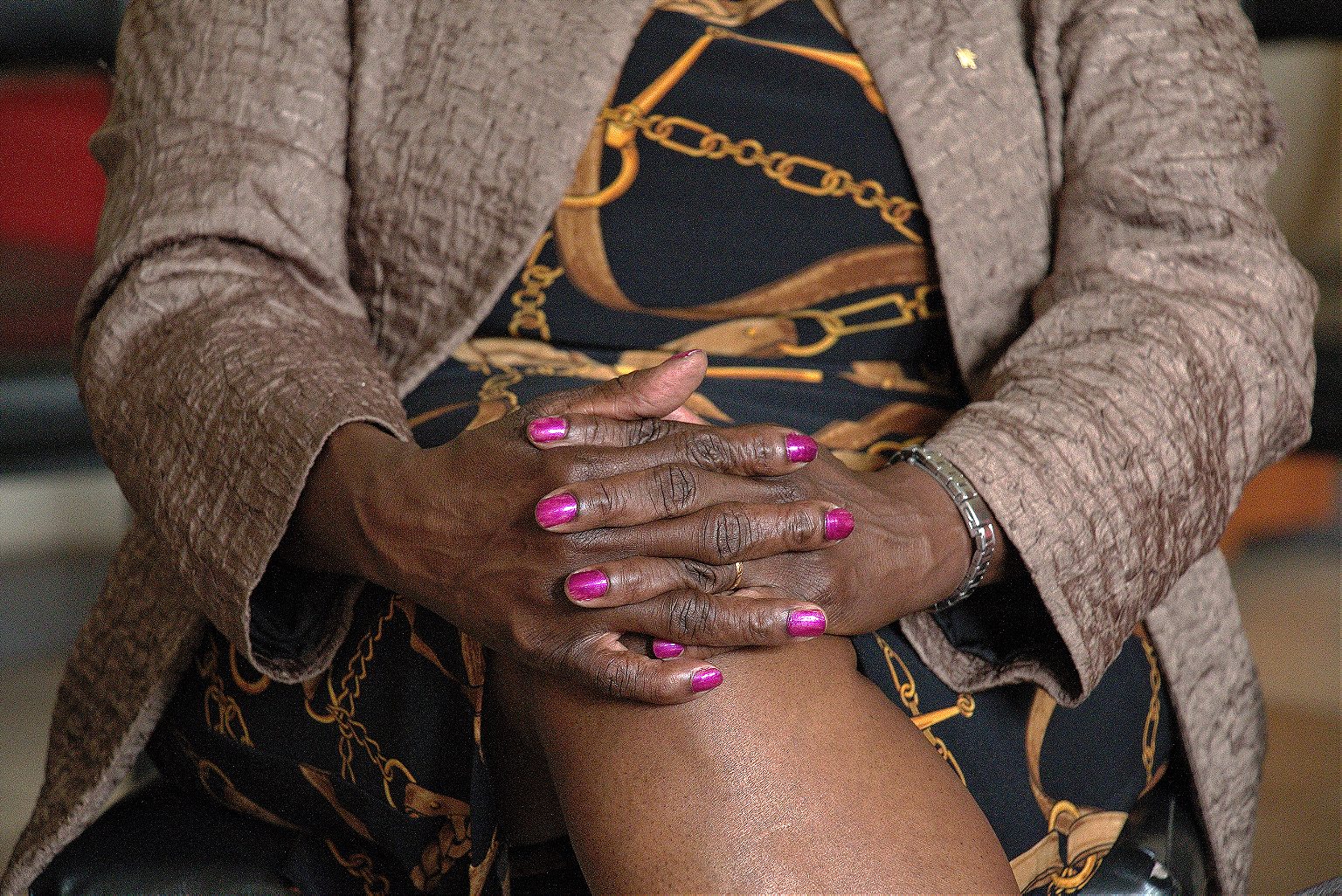
What is happening in Quakerism is also taking place across Christianity
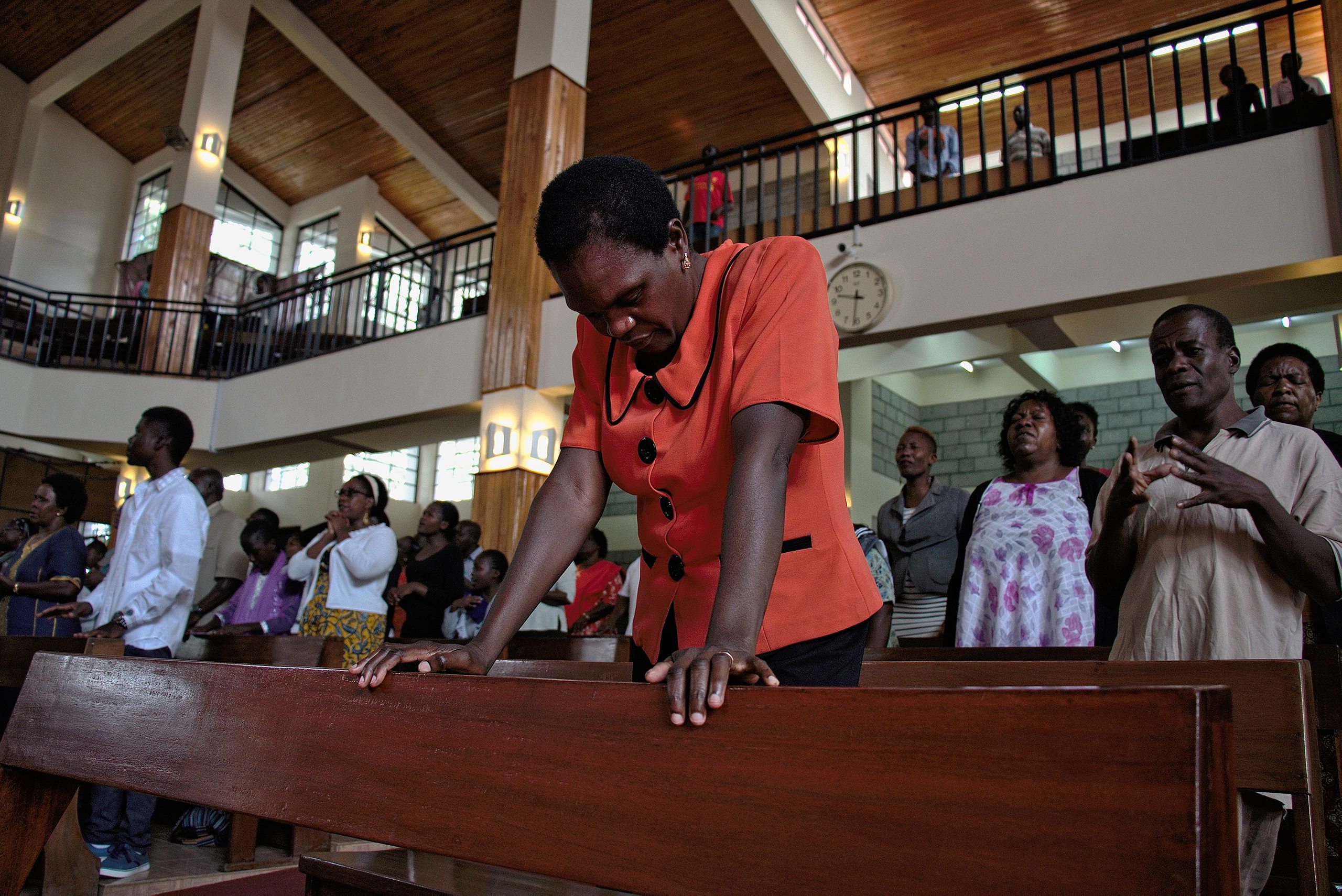
The face and center of power of Quakerism is migrating south, and rifts of this kind are making some Kenyan Quakers rethink their ties to the West. “The biggest question mark I see is whether [Kenyan Quakers] will want to move into full independence,” says Thomas Hamm, professor of Quaker studies at Earlham College in Indiana. Hamm predicts that that is unlikely—and Pastor Khaemba confirms that they don’t plan to cut ties entirely—but it is telling of the direction the Kenyan church is taking. In many ways, what is happening in Quakerism is also taking place across Christianity. The Pew Research Center estimates that there will be two and a half times more Christians in Africa than Europe by 2050. Currently, the numbers are about equal.
But while Kenyan Quakers are eager to be seen as independent—they are finalizing plans to create an umbrella organization—some of their programs and new churches are still funded by foreign donors. The vast majority of academics and Quaker thought-leaders reside in the West, though that is changing: the inaugural class of Nairobi’s first Quaker college is three weeks in. One of the students, Philemon Lusimbi, 30, is eager and quick to answer in class. He takes pride in being on the Quaker vanguard. “We’re pioneers here,” he says. But Lusimbi is clearly being taught the Kenyan style of Quakerism. He says he doesn’t know much about the Western branch.
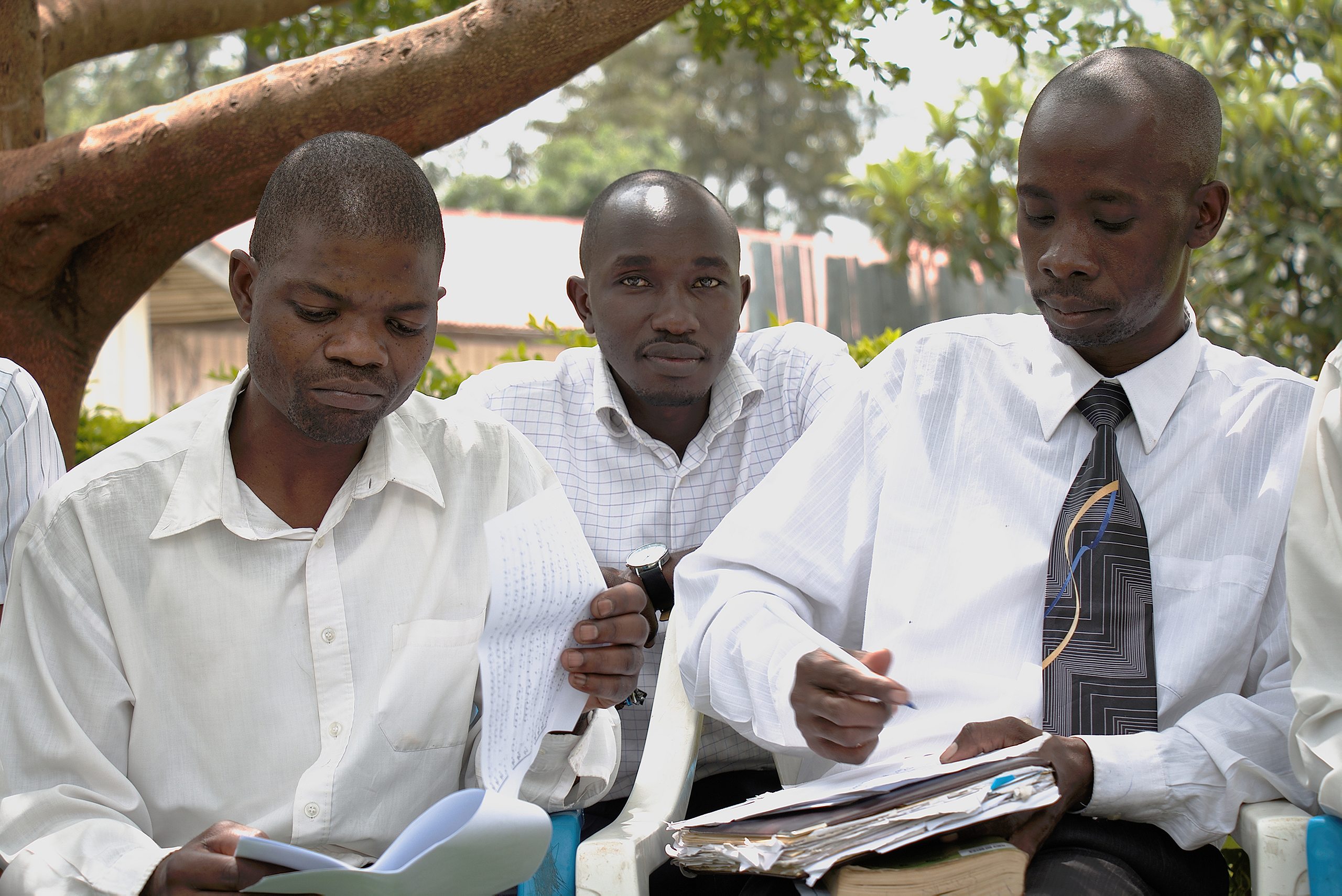
Donald Thomas is one of the six people who make up the silent worship group at the Friends International Centre. Jovial, with a big open-mouthed smile and a white beard to match his hair, he’s been in Kenya since colonial times and has seen the changing tides of Quakerism up close. He ventures into Pastor Walter’s service on occasion, but mostly sticks to the silent meetings. He says he would never consider joining the other service full-time even though things aren’t looking good for his branch of Quakerism.
After the worship, Thomas tells me that even the room where the Western Quakers meet is under threat. The owners of the Friends International Centre are considering tearing down the building to make way for a much more lucrative commercial center. As the group prepares their arguments to confront the Kenyan church leaders, Thomas wonders out loud. “How long will we be around? Who knows.”